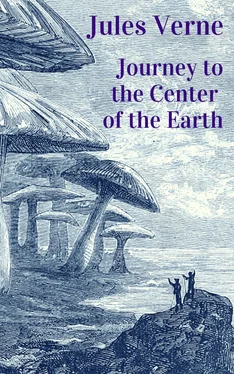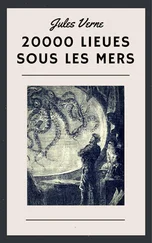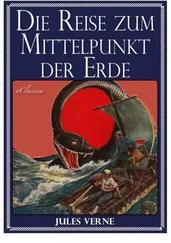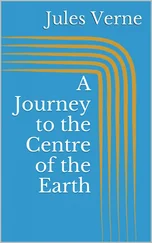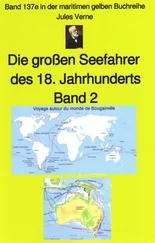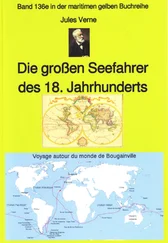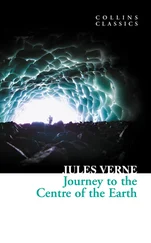“So, Axel, it is the heat that troubles you?”
“Of course it is. Were we to reach a depth of thirty miles we should have arrived at the limit of the terrestrial crust, for there the temperature will be more than 2,372 degrees.”
“Are you afraid of being put into a state of fusion?”
“I will leave you to decide that question,” I answered rather sullenly.
“This is my decision,” replied Professor Liedenbrock, putting on one of his grandest airs. “Neither you nor anybody else knows with any certainty what is going on in the interior of this globe, since not the twelve thousandth part of its radius is known; science is eminently perfectible; and every new theory is soon routed by a newer. Was it not always believed until Fourier that the temperature of the interplanetary spaces decreased perpetually? and is it not known at the present time that the greatest cold of the ethereal regions is never lower than forty degrees below zero Fahrenheit? Why should it not be the same with the internal heat? Why should it not, at a certain depth, attain an impassable limit, instead of rising to such a point as to fuse the most infusible metals?”
As my uncle was now taking his stand upon hypotheses, of course, there was nothing to be said.
“Well, I will tell you that true savants, among them Poisson, have demonstrated that if a heat of 360,000 degrees existed in the interior of the globe, the fiery gases arising from the fused matter would acquire an elastic force that the crust of the earth would be unable to resist, and that it would explode like the plates of a bursting boiler.”
“That is Poisson’s opinion, my uncle, nothing more.”
“Granted. But it is likewise the creed adopted by other distinguished geologists, that the interior of the globe is neither gas nor water, nor any of the heaviest minerals known, for in none of these cases would the earth weigh what it does.”
“Oh, with figures you may prove anything!”
“But is it the same with facts! Is it not known that the number of volcanoes has diminished since the first days of creation? and if there is central heat may we not thence conclude that it is in process of diminution?”
“My good uncle, if you will enter into the legion of speculation, I can discuss the matter no longer.”
“But I have to tell you that the highest names have come to the support of my views. Do you remember a visit paid to me by the celebrated chemist Humphry Davy in 1825?”
“Not at all, for I was not born until nineteen years afterwards.”
“Well, Humphry Davy did call upon me on his way through Hamburg. We were long engaged in discussing, among other problems, the hypothesis of the liquid structure of the terrestrial nucleus. We were agreed that it could not be in a liquid state, for a reason which science has never been able to confute.”
“What is that reason?” I said, rather astonished.
“Because this liquid mass would be subject, like the ocean, to the lunar attraction, and therefore twice every day there would be internal tides, which, upheaving the terrestrial crust, would cause periodical earthquakes!”
“Yet it is evident that the surface of the globe has been subject to the action of fire,” I replied, “and it is quite reasonable to suppose that the external crust cooled down first, while the heat took refuge down to the center.”
“Quite a mistake,” my uncle answered. “The earth has been heated by combustion on its surface, that is all. Its surface was composed of a great number of metals, such as potassium and sodium, which have the peculiar property of igniting at the mere contact with air and water; these metals kindled when the atmospheric vapors fell in rain upon the soil; and by and by, when the waters penetrated into the fissures of the crust of the earth, they broke out into fresh combustion with explosions and eruptions. Such was the cause of the numerous volcanoes at the origin of the earth.”
“Upon my word, this is a very clever hypothesis,” I exclaimed, rather in spite of myself.
“And which Humphry Davy demonstrated to me by a simple experiment. He formed a small ball of the metals that I have named, and which was a very fair representation of our globe; whenever he caused a fine dew of rain to fall upon its surface, it heaved up into little monticules, it became oxydized and formed miniature mountains; a crater broke open at one of its summits; the eruption took place, and communicated to the whole of the ball such a heat that it could not be held in the hand.”
In truth, I was beginning to be shaken by the Professor’s arguments, besides which he gave additional weight to them by his usual ardor and fervent enthusiasm.
“You see, Axel,” he added, “the condition of the terrestrial nucleus has given rise to various hypotheses among geologists; there is no proof at all for this internal heat; my opinion is that there is no such thing, it cannot be; besides we shall see for ourselves, and, like Arne Saknussemm, we shall know exactly what to hold as truth concerning this grand question.”
“Very well, we shall see,” I replied, feeling myself carried off by his contagious enthusiasm. “Yes, we shall see; that is, if it is possible to see anything there.”
“And why not? May we not depend upon electric phenomena to give us light? May we not even expect light from the atmosphere, the pressure of which may render it luminous as we approach the center?”
“Yes, yes,” said I, “that is possible, too.”
“It is certain,” exclaimed my uncle in a tone of triumph. “But silence, do you hear me? silence upon the whole subject; and let no one get ahead of us in this design of discovering the center of the earth.”
CHAPTER 7: A Woman’s Courage
Thus ended this memorable séance. That conversation threw me into a fever. I came out of my uncle’s study as if I had been stunned, and as if there was not air enough in all the streets of Hamburg to put me right again. I therefore made for the banks of the Elbe, where the steamer lands her passengers, which forms the communication between the city and the Hamburg railway.
Was I convinced of the truth of what I had heard? Had I not bent under the iron rule of the Professor Liedenbrock? Was I to believe him in earnest in his intention to penetrate to the center of this massive globe? Had I been listening to the mad speculations of a lunatic, or to the scientific conclusions of a lofty genius? Where did truth stop? Where did error begin?
I was all adrift among a thousand contradictory hypotheses, but I could not lay hold of one.
Yet I remembered that I had been convinced, although now my enthusiasm was beginning to cool down; but I felt a desire to start at once, and not to lose time and courage by calm reflection. I had at that moment quite courage enough to strap my knapsack to my shoulders and start.
But I must confess that in another hour this unnatural excitement abated, my nerves became unstrung, and from the depths of the abysses of this earth I ascended to its surface again.
“It is quite absurd!” I cried, “there is no sense about it. No sensible young man should for a moment entertain such a proposal. The whole thing is nonexistent. I have had a bad night; I have been dreaming of horrors.”
But I had followed the banks of the Elbe and passed the town. After passing the port too, I had reached the Altona road. I was led by a presentiment, soon to be realized; for shortly I espied my little Gräuben bravely returning with her light step to Hamburg.
“Gräuben!” I cried from afar off.
The young girl stopped, rather frightened perhaps to hear her name called after her on the high road. Ten yards more, and I had joined her.
“Axel!” she cried, surprised. “What! have you come to meet me? Is this why you are here, sir?”
Читать дальше
